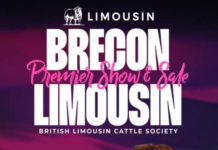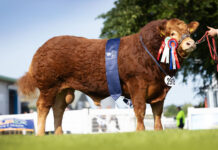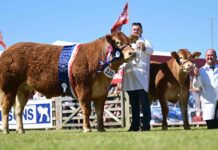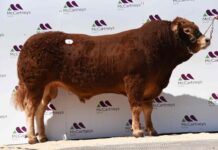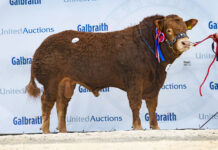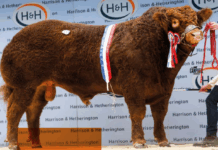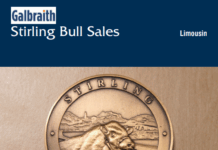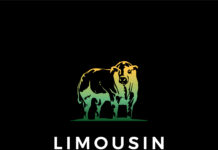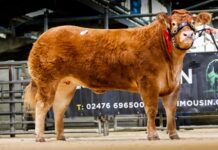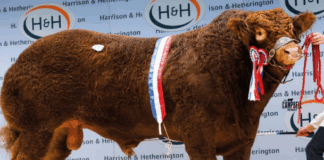£65,000 Returned to Members in Breed Improvement Incentive
£40,000 provided in Health Initiative Incentive
Over £500,000 returned to breeders in the last five years
The British Limousin Cattle Society (BLCS) is returning more than £100,000 to its members in two breed improvement incentives. This comprises of just over £65,000 in the breed improvement refund incentive, and almost £40,000 in a herd health initiative.
In the 2013 financial year, £65,750, up £5,000 on the year, was paid back to British Limousin breeders in pedigree refunds. A long-established breed improvement tool, the monies-back-incentive allows breeders to assess the quality of the stock they have registered up to the age of 450 days. If the breeder chooses to de-register the animal before it has attained this age, a flat rate refund of £20+VAT per animal is returned. Commenting on the figures, BLCS Vice Chairman John Phillips, Whitland, Carmarthenshire, said: “This is a simple but highly effective breed improvement tool that has seen the Society return over £650,000 of registration income to breeders. It is a significant investment in the breed’s future and is indicative of the Society’s on-going intent to encourage breeders to be selective and drive continuous breed improvement in the British Limousin Herdbook.”
In the 2013 year, an additional £100,000 in cost savings and returns to members has been achieved by the Society through its Herd Health Initiative; reduced performance recording fees; subsidised DNA testing; and efficiencies in the BASCO herd book system. Over the last five years alone, more than £500,000 in returns and savings have been made and passed back to BLCS members.
Within these figures, £39,512 was refunded to members through its Herd Health Initiative in 2013. The cash-back scheme, based on £4+VAT for each calf registered in the past year, financially supports breeders who are making the long-term investment into herd health assurance through being a member of a CHeCS-approved health scheme. To receive the financial support, herds need to adhere to the terms of a CHeCS licenced scheme and have an approved animal health scheme in place through Cattle Health Certification Standards (CHeCS), the self-regulatory body for cattle health schemes in the UK & Ireland. This must include a whole herd test for Johne’s disease.
In 2013, 366 herds made a claim on behalf of 9,878 calves registered in the year – an increase of 7% in terms of calf numbers and 12% in relation to herds. This means that 51% of all pedigree Limousin calves registered in the year are now born within herds participating in CheCS herd health schemes. Having been originally established in 2005 as a four-year project and limited to a ceiling of £100,000, the BLCS Herd Health Initiative has subsequently grown to support members’ herds to the tune of over £200,000 over the intervening nine-year period. Over the years, uptake in health scheme membership has increased markedly with momentum further driven by the health rules around Johne’s and BVD which were introduced at Premier BLCS Collective Sales from 1st May 2011.
From its position as the UK’s most numerical breed, the BLCS have very much been a driver behind the uptake in health scheme membership and providing herd health information at the point of sale. Speaking around the latest figures, BLCS Development Manager, Richard Saunders said: “Herd health is so important in maximizing productivity and profitability in both the pedigree and commercial sectors. Breeders and commercial customers welcome the fact that they are able to invest with confidence in Limousin stock from herds with a demonstrable health history.”


